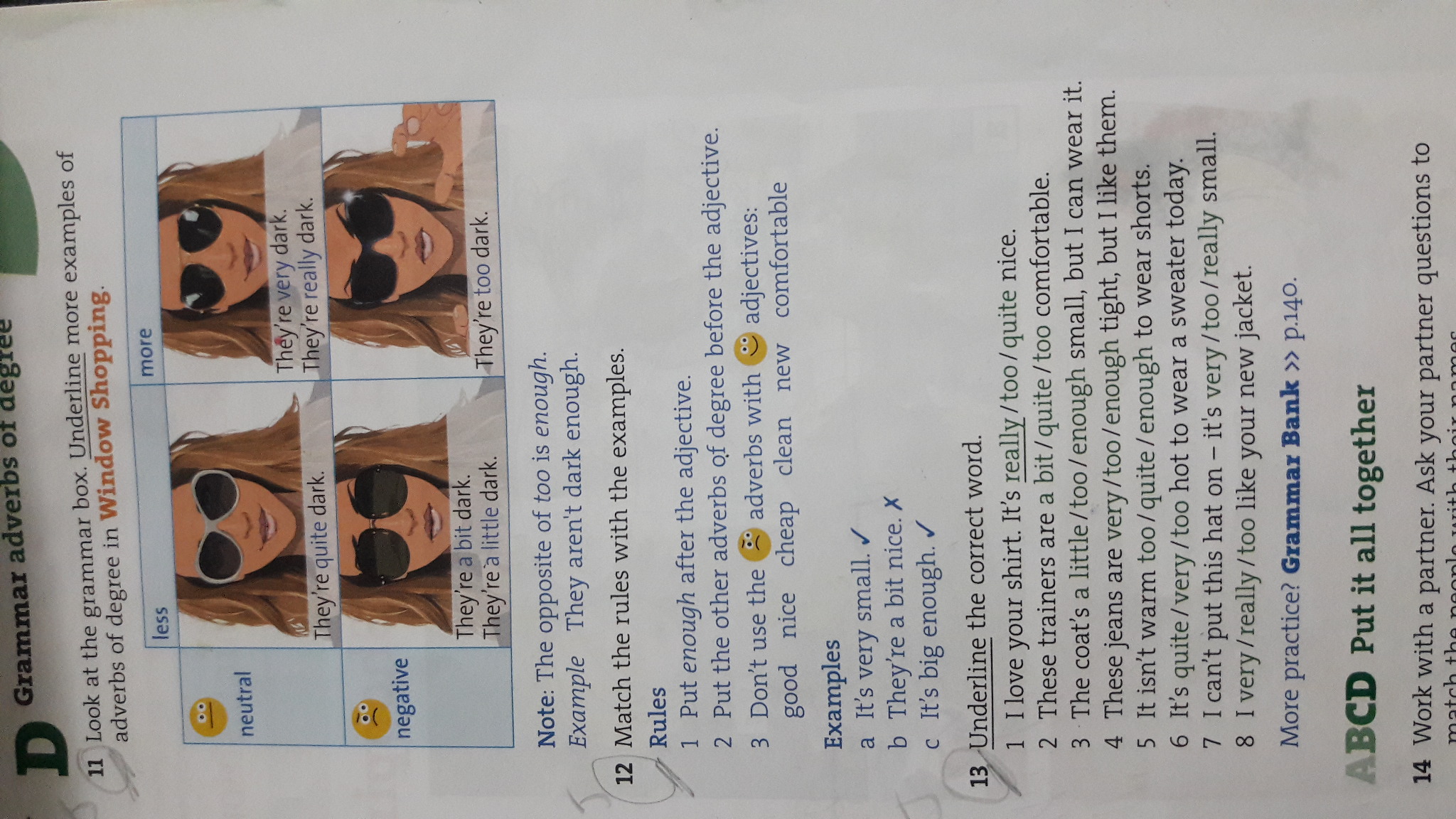I was looking through an English book and came across a rule that has confused me; I dont remember reading it anywhere before(but I am not that well read anyway);
Don't use these adverbs(a bit, a little, too) with these adjectives-good, nice, cheap, clean, new, comfortable.
I haven't been able to find something about this on the net. If anyone here can shed some light on it, that would be great!
edit: Name of the book is, 'English Result Pre intermediate student's book, Mark Hancock and Annie McDonald, Oxford University Press'. In a lesson on adverbs of degree, there is an exercise where students have to match Rules with examples: The above rule matches with 'They're a bit nice'. There is a cross next to this sentence suggesting that this is wrong usage.
12 Match the rules with the examples
Rules
1 Put enough after the adjective.
2 Put the adverbs of degree before the adjective
3 Don’t use the 🤨 adverbs with 😀 adjectives:
good nice cheap clean new comfortable
Examples
a It’s very small ✓
b They’re a bit nice ✗
c It’s big enough ✓
🤨 adverbs in the above exercise are - 'a bit, a little, too'
edit: this is the page in the book to give the context, maybe I have missed some detail  Couldn't get it right side up, sorry about that.
Couldn't get it right side up, sorry about that.
